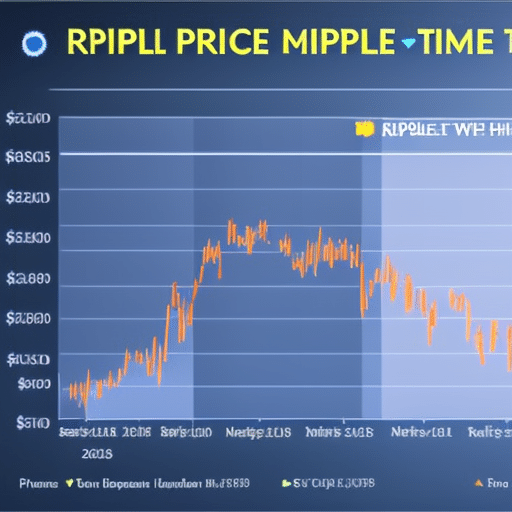CoinMarketCap API Guide: Crypto Data Made Easy
In today’s fast-paced cryptocurrency market, staying informed is crucial for investors and developers alike. That’s where the CoinMarketCap API comes into play, offering a powerful tool to access real-time data on thousands of digital assets.
Whether you’re building a crypto portfolio tracker, conducting market analysis, or integrating cryptocurrency data into your application, the CoinMarketCap API provides a wealth of information at your fingertips. From current prices and market caps to historical data and exchange rates, this API offers comprehensive insights into the ever-evolving world of digital currencies.
Key Takeaways
- CoinMarketCap API provides real-time and historical data on thousands of cryptocurrencies, including prices, market caps, and trading volumes.
- The API offers various endpoints for accessing cryptocurrency, exchange, and global market data, with customizable parameters for specific queries.
- Different pricing tiers are available, from free plans to enterprise solutions, each with specific rate limits and features to suit various project needs.
- Best practices for using the API include secure key management, efficient query design, robust error handling, and adherence to terms of service.
- Several alternatives to CoinMarketCap API exist, such as CoinGecko, Binance, and Messari, each offering unique features and data coverage options.
What Is CoinMarketCap API?
CoinMarketCap API is a powerful tool that provides developers and businesses with programmatic access to cryptocurrency data. It’s a RESTful API that delivers real-time and historical information on thousands of digital assets, including prices, market capitalization, trading volume, and more.
The API offers various endpoints, each serving specific data needs:
- Cryptocurrency: Retrieve detailed information on individual cryptocurrencies
- Exchange: Access data on cryptocurrency exchanges
- Global Metrics: Obtain overall market statistics
- Tools: Utilize conversion and other utility functions
CoinMarketCap API’s data comes directly from the popular CoinMarketCap website, ensuring accuracy and reliability. It’s designed for seamless integration into applications, websites, and analytical tools, making it an essential resource for developers working on crypto-related projects.
Key features of the CoinMarketCap API include:
- Real-time price updates
- Historical data for market analysis
- Comprehensive metadata on cryptocurrencies
- Support for multiple fiat currencies
- Customizable API call limits
The API offers different tiers of access, from a free basic plan to premium subscriptions with higher rate limits and additional features. This flexibility allows users to choose a plan that best fits their project requirements and budget constraints.
By leveraging the CoinMarketCap API, you can build robust cryptocurrency tracking tools, conduct in-depth market analysis, and integrate up-to-date crypto data into your applications, enhancing their functionality and user experience.
Key Features of CoinMarketCap API
The CoinMarketCap API offers a robust set of features designed to provide comprehensive cryptocurrency data. Here are the key features that make this API a valuable resource for developers and investors:
Real-Time Cryptocurrency Data
The CoinMarketCap API delivers up-to-the-minute cryptocurrency data, ensuring you’re always working with the most current information. It provides:
- Live price updates for thousands of cryptocurrencies
- Real-time market capitalization figures
- 24-hour trading volume statistics
- Circulating supply information
- Total supply and maximum supply data
These real-time updates enable you to track market movements and make informed decisions based on the latest data.
Historical Price Information
Access to historical data is crucial for analyzing trends and making predictions. The CoinMarketCap API offers:
- Detailed historical price data for cryptocurrencies
- Customizable date ranges for historical queries
- Daily, hourly, and minute-by-minute historical data points
- Historical market capitalization and volume information
This feature allows you to perform in-depth analysis of price movements and market trends over time.
Market Metrics and Analytics
The API provides a wealth of market metrics and analytical tools to help you gain deeper insights:
- Global market cap and 24-hour volume statistics
- Dominance percentages for top cryptocurrencies
- Price change percentages across various time frames
- Market pair data for trading pairs
- Exchange-specific metrics and rankings
These analytics enable you to assess market sentiment, identify trends, and make data-driven decisions in your cryptocurrency projects or investments.
How to Get Started with CoinMarketCap API
Getting started with the CoinMarketCap API is straightforward. Follow these steps to begin accessing cryptocurrency data for your projects or analyses.
Obtaining an API Key
To use the CoinMarketCap API, you’ll need an API key:
- Visit the CoinMarketCap website and create an account
- Navigate to the API section in your dashboard
- Select a plan that fits your needs (Basic, Hobbyist, Startup, or Enterprise)
- Generate your unique API key
- Store your API key securely, as you’ll need it for authentication
Making Your First API Call
Once you have your API key, you’re ready to make your first API call:
- Choose an API endpoint based on your data needs (e.g., latest cryptocurrency listings)
- Construct your API request URL using the endpoint and your API key
- Use a programming language or tool of your choice (e.g., Python, JavaScript, cURL)
- Send a GET request to the API endpoint
- Parse the JSON response to extract the desired cryptocurrency data
Example API call using cURL:
curl -H "X-CMC_PRO_API_KEY: YOUR_API_KEY" -H "Accept: application/json" -d "start=1&limit=5000&convert=USD" -G https://pro-api.coinmarketcap.com/v1/cryptocurrency/listings/latest
This call retrieves the latest cryptocurrency listings, including data such as price, market cap, and volume for various digital assets like Bitcoin, Ethereum, and altcoins.
Popular Use Cases for CoinMarketCap API
The CoinMarketCap API offers versatile applications for cryptocurrency enthusiasts and developers. Here are two popular use cases that leverage the API’s capabilities:
Building Cryptocurrency Portfolios
The CoinMarketCap API enables you to create comprehensive cryptocurrency portfolios. Key features include:
- Real-time price tracking: Monitor live prices of multiple cryptocurrencies simultaneously
- Portfolio valuation: Calculate the total value of your holdings in various fiat currencies
- Performance analytics: Track portfolio performance over time with historical data
- Diversification analysis: Assess asset allocation and risk exposure across different coins
Implement these features by making API calls to retrieve current prices, market caps, and trading volumes for your selected cryptocurrencies. Use the data to generate insightful visualizations and reports for informed decision-making.
Creating Price Alert Systems
Develop automated price alert systems using the CoinMarketCap API. Essential components include:
- Custom price thresholds: Set personalized price targets for specific cryptocurrencies
- Multi-currency support: Configure alerts in various fiat currencies or cryptocurrency pairs
- Notification channels: Integrate with email, SMS, or push notification services
- Historical price comparisons: Analyze price movements relative to previous highs or lows
Utilize the API’s real-time data to trigger alerts when predefined conditions are met. Implement WebSocket connections for instant updates on price changes, ensuring timely notifications for users.
Understanding API Endpoints and Parameters
CoinMarketCap’s API offers various endpoints to access specific cryptocurrency data. Each endpoint serves a unique purpose and requires different parameters for customized requests.
Common API Endpoints
CoinMarketCap’s API includes these essential endpoints:
- /v1/cryptocurrency/listings/latest: Retrieves the latest cryptocurrency listings
- /v1/cryptocurrency/quotes/latest: Fetches current price quotes for specific cryptocurrencies
- /v1/cryptocurrency/info: Provides detailed metadata about cryptocurrencies
- /v1/exchange/listings/latest: Displays the latest exchange listings
- /v1/global-metrics/quotes/latest: Offers global cryptocurrency market metrics
Key API Parameters
API parameters customize data requests. Common parameters include:
- symbol: Specifies cryptocurrency symbols (e.g., BTC, ETH)
- convert: Converts prices to a specific fiat currency (e.g., USD, EUR)
- limit: Sets the number of results to return
- sort: Arranges results based on specific criteria (e.g., market_cap, volume_24h)
- start: Determines the starting point for paginated results
Constructing API Requests
To construct an API request:
- Choose an endpoint based on desired data
- Add required parameters to the base URL
- Include your API key in the request header
Example request URL:
https://pro-api.coinmarketcap.com/v1/cryptocurrency/listings/latest?start=1&limit=10&convert=USD
This request retrieves the top 10 cryptocurrencies by market cap, converted to USD.
Handling API Responses
CoinMarketCap API returns data in JSON format. Parse the response to extract relevant information:
- status: Contains response metadata (error code, elapsed time)
- data: Includes the requested cryptocurrency data
Example response structure:
{
"status": {
"timestamp": "2025-05-01T00:00:00.000Z",
"error_code": 0,
"error_message": null,
"elapsed": 10,
"credit_count": 1
},
"data": [
{
"id": 1,
"name": "Bitcoin",
"symbol": "BTC",
"quote": {
"USD": {
"price": 50000,
"market_cap": 1000000000000
}
}
}
]
}
By understanding API endpoints and parameters, you’ll efficiently retrieve and utilize CoinMarketCap’s cryptocurrency data for your applications and analyses.
Rate Limits and Pricing Plans
CoinMarketCap’s API offers various pricing tiers to accommodate different usage needs. Each plan comes with specific rate limits that determine the number of API calls you can make within a given time frame.
Free Plan
The free plan provides basic access to CoinMarketCap’s API:
- 10,000 API call credits per month
- Limited to 30 calls per minute
- Access to current cryptocurrency data
- No historical data or advanced features
Basic Plan
For users requiring more frequent updates:
- 40,000 API call credits per month
- Up to 60 calls per minute
- Access to historical data (limited)
- Basic cryptocurrency metadata
Hobbyist Plan
Designed for individual developers and small projects:
- 120,000 API call credits per month
- Up to 120 calls per minute
- Full historical data access
- Enhanced metadata and market pair data
Startup Plan
Tailored for growing businesses and applications:
- 250,000 API call credits per month
- Up to 180 calls per minute
- Advanced endpoints for detailed market analysis
- Priority support
Standard Plan
For established businesses with higher volume needs:
- 500,000 API call credits per month
- Up to 240 calls per minute
- Full access to all API endpoints
- Dedicated account manager
Professional Plan
Catering to large-scale applications and data-intensive operations:
- 1,000,000 API call credits per month
- Up to 300 calls per minute
- Custom solutions and integrations
- 24/7 premium support
Enterprise Solutions
For organizations requiring bespoke solutions:
- Custom API call credits allocation
- Tailored rate limits
- Specialized endpoints and data feeds
- Direct access to CoinMarketCap’s data team
Managing Rate Limits
To optimize your API usage:
- Monitor your API call count using the response headers
- Implement caching mechanisms to reduce redundant calls
- Use batch requests when possible to maximize efficiency
- Spread out API calls evenly to avoid hitting rate limits
Upgrading Plans
As your needs grow:
- Assess your current usage patterns
- Estimate future requirements
- Contact CoinMarketCap’s sales team for tailored solutions
- Seamlessly transition to a higher tier without service interruption
By understanding these rate limits and pricing plans, you’ll ensure uninterrupted access to CoinMarketCap’s comprehensive cryptocurrency data for your projects and applications.
Best Practices for Using CoinMarketCap API
Rate Limiting and API Key Management
Manage your API key securely to prevent unauthorized access. Store it in environment variables or secure configuration files. Implement rate limiting in your application to avoid exceeding CoinMarketCap’s quota. Use caching mechanisms to reduce unnecessary API calls and optimize performance.
Error Handling and Retries
Implement robust error handling to manage API request failures gracefully. Use exponential backoff for retries on transient errors. Log errors and responses for debugging and monitoring. Handle rate limit errors by pausing requests temporarily or switching to a backup data source.
Data Validation and Parsing
Validate API responses to ensure data integrity. Parse JSON responses carefully, handling potential missing or null values. Use strong typing and data models to structure the received information. Implement data normalization techniques for consistent representation across different endpoints.
Efficient Query Design
Optimize API requests by using appropriate endpoints and parameters. Utilize pagination for large data sets to reduce response times. Implement batching for multiple symbol queries when possible. Filter unnecessary data fields to minimize response payload size and processing time.
Keeping Data Fresh
Implement a data refresh strategy based on your application’s needs. Use the “last_updated” field to determine when to fetch new data. Consider implementing websocket connections for real-time updates on supported endpoints. Balance data freshness with API call efficiency to optimize your application’s performance.
Documentation and Versioning
Stay updated with CoinMarketCap’s API documentation for new features and changes. Implement version checking in your code to ensure compatibility with API updates. Document your API integration thoroughly, including endpoint usage and data processing logic. Consider creating wrapper libraries or modules for easier maintenance and reusability.
Monitoring and Analytics
Implement monitoring tools to track API usage and performance. Set up alerts for abnormal API behavior or approaching rate limits. Use analytics to understand usage patterns and optimize your integration. Regularly review and analyze API logs for potential improvements or issues.
Compliance and Terms of Service
Adhere strictly to CoinMarketCap’s terms of service and usage guidelines. Implement proper attribution when displaying data from the API. Respect data usage restrictions, especially for commercial applications. Stay informed about any changes to the API’s terms and conditions to ensure ongoing compliance.
Alternatives to CoinMarketCap API
While CoinMarketCap API is a popular choice for cryptocurrency data, several alternatives offer similar functionality. These options provide diverse features, pricing structures, and data coverage to suit different project needs.
CoinGecko API
CoinGecko API offers comprehensive cryptocurrency data with generous rate limits:
- Free tier: 50 calls/minute
- Pro tier: 500 calls/minute
- Coverage: 13,000+ coins and 500+ exchanges
- Endpoints: Price, market data, exchange volumes, and historical data
CoinGecko’s API is known for its reliability and extensive token coverage, making it a solid alternative to CoinMarketCap.
Binance API
Binance, a leading cryptocurrency exchange, provides a robust API:
- Free to use with rate limits based on account tier
- Real-time market data for 1,400+ trading pairs
- Comprehensive order book and trade history data
- WebSocket support for live updates
Binance API is ideal for projects focusing on trading data and exchange-specific information.
Messari API
Messari offers a data API with a focus on institutional-grade information:
- Free tier: 20 calls/minute
- Pro tier: 30 calls/second
- Coverage: 500+ assets and 70+ metrics
- Unique features: On-chain data, governance info, and asset profiles
Messari API stands out for its detailed asset analysis and on-chain metrics.
Nomics API
Nomics provides a cryptocurrency and exchange data API:
- Free tier: 1 call/second
- Paid tiers: Up to 100 calls/second
- Coverage: 40,000+ currencies and 100+ exchanges
- Features: Candle data, exchange transparency ratings, and global market data
Nomics API is known for its data normalization and exchange transparency metrics.
Cryptocompare API
Cryptocompare offers a comprehensive crypto data API:
- Free tier: 100,000 calls/month
- Commercial plans: Up to 1,000 calls/second
- Coverage: 5,000+ coins and 250+ exchanges
- Unique features: Social media data, news aggregation, and mining statistics
Cryptocompare API provides a wide range of data points, including social and news metrics.
Each of these alternatives to CoinMarketCap API offers unique features and data sets. Consider your specific project requirements, budget constraints, and desired data coverage when choosing the most suitable API for your cryptocurrency data needs.
Conclusion
The CoinMarketCap API and its alternatives offer powerful tools for accessing cryptocurrency market data. By understanding your project’s specific needs you can choose the right API to fuel your applications and analyses. Whether you prioritize comprehensive coverage extensive historical data or specialized metrics there’s an option tailored to your requirements. Remember to consider factors like pricing data accuracy and API reliability when making your decision. With the right cryptocurrency API at your disposal you’ll be well-equipped to navigate the dynamic world of digital assets and create innovative solutions in this rapidly evolving space.
Frequently Asked Questions
What is the CoinMarketCap API used for?
The CoinMarketCap API is used to access cryptocurrency market data and insights. It provides information on cryptocurrency prices, market capitalization, trading volume, and other relevant metrics. Developers and analysts use this API to integrate real-time and historical cryptocurrency data into their applications, websites, or research projects.
Are there alternatives to the CoinMarketCap API?
Yes, there are several alternatives to the CoinMarketCap API. Some popular options include CoinGecko, Binance, Messari, Nomics, and Cryptocompare APIs. Each of these alternatives offers unique features, pricing structures, and data coverage to cater to different project needs and preferences.
How do I choose the right cryptocurrency API for my project?
To choose the right cryptocurrency API, consider your project requirements, budget, and data coverage needs. Evaluate factors such as the types of data provided, API call limits, pricing plans, data accuracy, and update frequency. Also, consider the API’s documentation, support, and integration ease to ensure it aligns with your technical capabilities and project goals.
What kind of data can I access through cryptocurrency APIs?
Cryptocurrency APIs typically provide access to a wide range of data, including real-time and historical price information, trading volume, market capitalization, circulating supply, and exchange-specific data. Some APIs also offer additional features like social media metrics, news aggregation, and blockchain network statistics, depending on their focus and specialization.
Are cryptocurrency APIs free to use?
Many cryptocurrency APIs offer free tiers with limited access to data and API calls. However, for more comprehensive data, higher call limits, and advanced features, most APIs require paid subscriptions. Pricing models vary among providers, with some offering tiered plans based on usage, while others provide custom enterprise solutions for high-volume users.
How often is the data updated in cryptocurrency APIs?
Data update frequency varies depending on the API provider and the specific endpoint. Real-time price data is typically updated every few seconds or minutes, while other metrics like market capitalization or circulating supply may be updated less frequently. Most reputable APIs strive to provide the most up-to-date information possible to ensure accuracy for their users.






 Bitcoin
Bitcoin  Ethereum
Ethereum  Tether
Tether  XRP
XRP  USDC
USDC  Solana
Solana  TRON
TRON  Lido Staked Ether
Lido Staked Ether  Figure Heloc
Figure Heloc  Dogecoin
Dogecoin  Bitcoin Cash
Bitcoin Cash  WhiteBIT Coin
WhiteBIT Coin  USDS
USDS  Cardano
Cardano  Wrapped stETH
Wrapped stETH  LEO Token
LEO Token  Hyperliquid
Hyperliquid  Wrapped Bitcoin
Wrapped Bitcoin  Ethena USDe
Ethena USDe  Binance Bridged USDT (BNB Smart Chain)
Binance Bridged USDT (BNB Smart Chain)  Canton
Canton  Chainlink
Chainlink  Monero
Monero  USD1
USD1  Wrapped eETH
Wrapped eETH  Stellar
Stellar  Rain
Rain  sUSDS
sUSDS  Dai
Dai  Hedera
Hedera  PayPal USD
PayPal USD  Coinbase Wrapped BTC
Coinbase Wrapped BTC  Litecoin
Litecoin  Zcash
Zcash  Avalanche
Avalanche  WETH
WETH  Shiba Inu
Shiba Inu  Sui
Sui  Toncoin
Toncoin  USDT0
USDT0  World Liberty Financial
World Liberty Financial  Cronos
Cronos  Tether Gold
Tether Gold  MemeCore
MemeCore  PAX Gold
PAX Gold  Uniswap
Uniswap  Polkadot
Polkadot  Ethena Staked USDe
Ethena Staked USDe